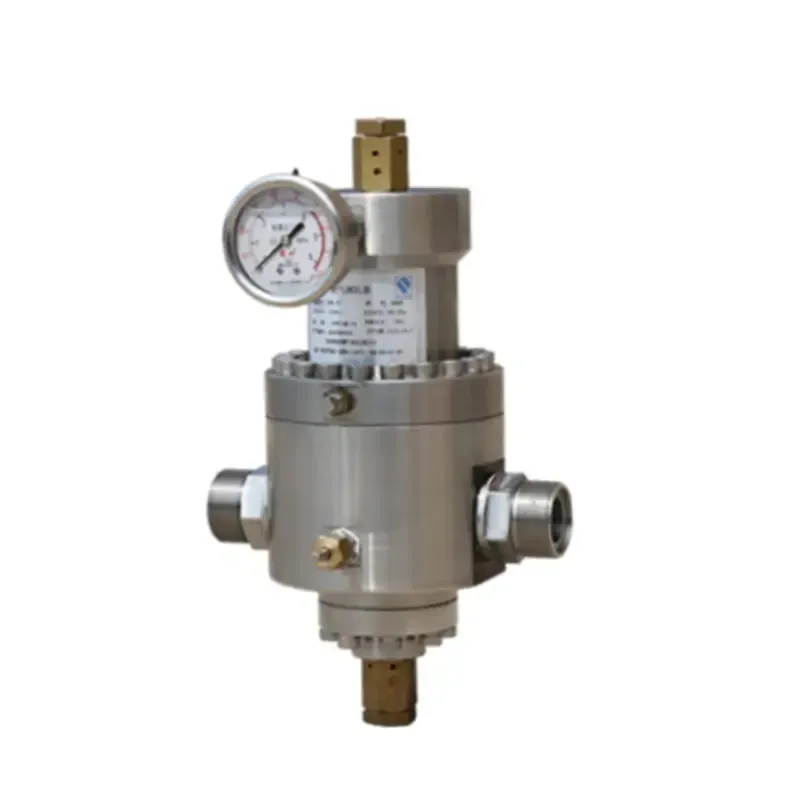
Sep . 12, 2024 01:35
Back to list
Natural Gas Safety Valve - Essential Protection for Your Home and Business
The Importance of Natural Gas Safety Valves
Natural gas is a vital energy source that powers homes, industries, and vehicles across the globe. Its versatility and efficiency have made it a popular choice for heating, cooking, and electricity generation. However, along with its benefits, natural gas also poses significant safety risks if not managed correctly. One of the critical components in ensuring natural gas safety is the safety valve.
A natural gas safety valve is a crucial device designed to protect gas systems from overpressure conditions. These valves automatically release excess pressure, preventing potential accidents such as explosions or leaks. They play an essential role in maintaining the integrity of gas pipelines, storage tanks, and distribution systems.
The design and functionality of safety valves in natural gas systems are based on several principles. Typically, these valves are spring-loaded and calibrated to open at a predetermined pressure level. When the internal pressure exceeds this threshold, the valve opens, allowing gas to escape safely into the atmosphere or a designated relief system. Once the pressure drops back to a safe level, the valve closes automatically, ensuring that the system returns to its normal operating state.
natural gas safety valve

The importance of regular maintenance and inspection of safety valves cannot be overstated. Over time, valves can become clogged with debris, rust, or corrosion, which may impede their function. Regular checks and maintenance help identify potential issues before they escalate, ensuring that the safety valves operate effectively when needed. Many industry standards and regulatory guidelines require routine inspections to comply with safety regulations.
In addition to routine maintenance, advancements in technology have enhanced the performance and reliability of natural gas safety valves
. Modern valves are equipped with advanced monitoring systems that can provide real-time data about pressure levels and the operational status of the valve. This technology not only ensures early detection of potential issues but also allows for predictive maintenance, reducing the likelihood of unexpected failures.Training and education are also vital in the context of natural gas safety valves. Personnel involved in the operation, maintenance, and inspection of gas systems must be knowledgeable about the functions and importance of safety valves. Proper training ensures that staff can respond effectively to any alerts or emergencies, further reinforcing the safety of natural gas systems.
In conclusion, natural gas safety valves are indispensable components in the safe transportation and distribution of natural gas. They are essential for preventing hazardous situations that could lead to catastrophic incidents. Ensuring their proper functioning through regular maintenance, technological advancements, and adequate training is critical for safeguarding both lives and property. As the demand for natural gas continues to grow, so too does the necessity for stringent safety measures, with safety valves being at the forefront of these efforts. By prioritizing safety in natural gas systems, we can enjoy the benefits of this energy source while minimizing the associated risks.
Latest news
-
Safety Valve Spring-Loaded Design Overpressure ProtectionNewsJul.25,2025
-
Precision Voltage Regulator AC5 Accuracy Grade PerformanceNewsJul.25,2025
-
Natural Gas Pressure Regulating Skid Industrial Pipeline ApplicationsNewsJul.25,2025
-
Natural Gas Filter Stainless Steel Mesh Element DesignNewsJul.25,2025
-
Gas Pressure Regulator Valve Direct-Acting Spring-Loaded DesignNewsJul.25,2025
-
Decompression Equipment Multi-Stage Heat Exchange System DesignNewsJul.25,2025

